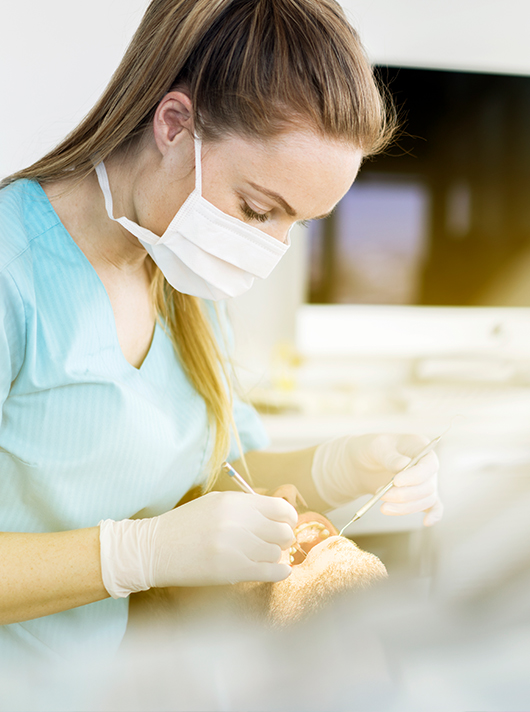Oral Surgery
in Dallas, TX
From routine preventive care to in-house oral surgery, our team does it all! Whether you’re not sure which treatment you need or you’re specifically looking for a dental office in Dallas that provides dental implant placements, dental extractions, or bone graft procedures, we’d be glad to assist you. Contact our office today to learn more and schedule your consultation.
Contact Us
Our Surgical Treatment Options
Our office provides several options for in-house oral surgery, including dental implant placements, dental extractions, and bone graft treatments. For patients who are missing one or more teeth and want a durable, natural-feeling solution, having a dental implant placed in the jawbone is often a preferred solution. Sometimes when a tooth is missing for long periods of time, a bone graft procedure will have to be performed to restore the health and strength of the jawbone. And while we want our patients to keep their natural teeth as much as possible, there are cases in which a dental extraction is the best option.

Relaxing Sedation Dentistry
Our choices for dental sedation include nitrous oxide, oral sedation, IV sedation, and general anesthesia to help patients feel relaxed during procedures. Nitrous oxide, or “laughing gas,” is inhaled through a mask and provides mild, temporary relaxation. Oral conscious sedation involves taking a pill before the appointment to reduce anxiety and make you feel drowsy. IV sedation is administered through a vein, offering deeper relaxation and quicker effects. General anesthesia is used for more complex procedures, putting you into a deep sleep so you won’t feel any pain or remember the procedure.
Our team can help you determine which sedation option, if any, will be right for you and your treatment plan.
Oral Surgery Recovery
Recovering from oral surgery involves several important steps to ensure proper healing and minimize discomfort. Initially, you will want to rest and limit physical activity as much as possible to reduce swelling and promote recovery. Apply ice packs to the affected area and take prescribed pain medications as directed. Maintain good oral hygiene by gently rinsing with salt water and avoiding brushing near the surgical site. Stick to a soft diet, avoiding hard or chewy foods that could irritate the area. Should you have any questions or concerns at any point during the recovery process, feel free to get in touch with us.
Contact Us

